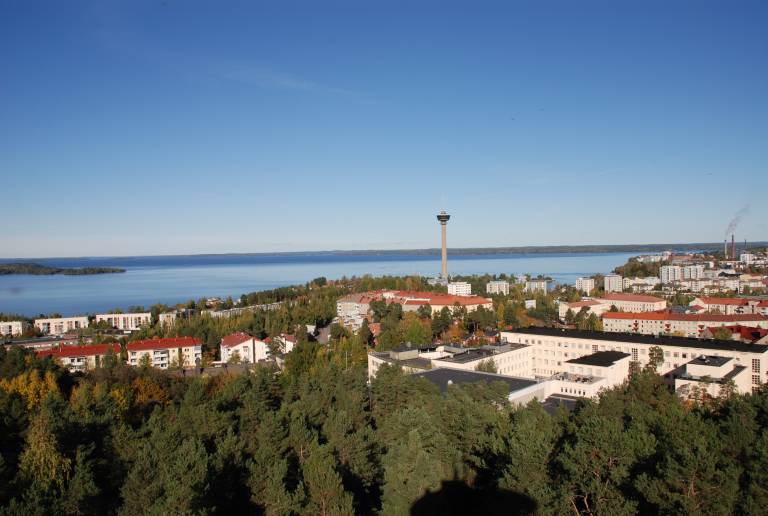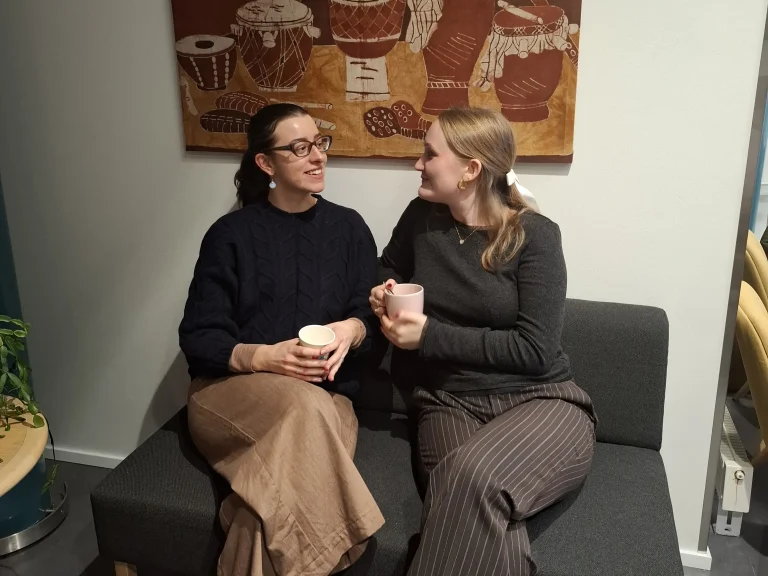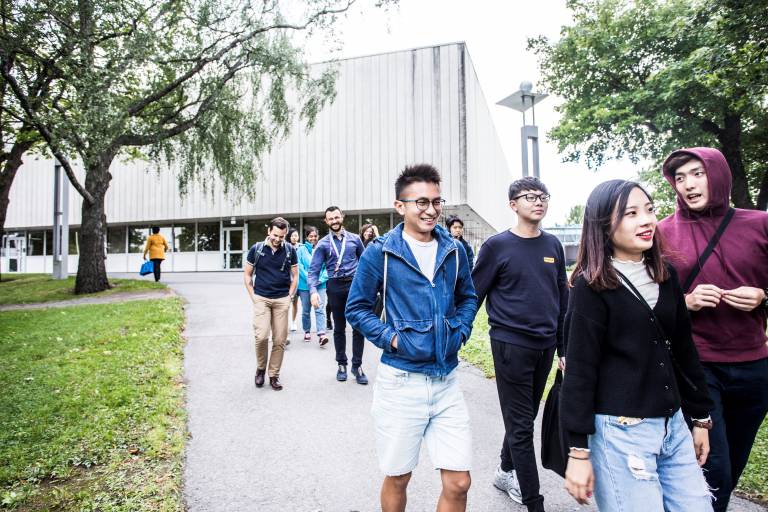Topical and yet long-standing expertise
Students majoring in International Security will develop expertise for operating within the complex environment of global, regional and national security governance and politics. The track provides theoretical and practical understanding on aspects such as strategy, foreign policy, geopolitics, crisis management and environmental security.
“The new programme will provide broad-based understanding of the different levels of security and the way these levels interact with each other. Security management will be discussed on both national and international levels, also covering transnational organisations, which involve great potential in international security. The combination offered in this programme is quite unique, as it draws both from administrative science and international politics,” says Research Director Hanna Ojanen.
Students majoring in Security Governance, in turn, will develop expertise in security governance, leadership and management in international, national and local security environments, in security organisations, public agencies and the third sector. The renewed track will be a full-fledged social science programme. It has previously been more tech-driven, but the prevailing security environment and political atmosphere have brought focus back to more traditional questions.
“Technology is still highly important, but there is currently great demand for generalist security experts in working life. Security specialists’ work is constantly expanding as security alliances are increasing, the EU is also becoming a security union, the basic functions of a state are being re-evaluated and there is more need for international analyses overall. Also, despite of how things develop in the future, the need for security and preparedness will never go away,” says Associate Professor Elias Pekkola, responsible for the Security Governance programme.
Both SAFER programmes provide grounds for employment in a variety of positions in national and international security organisations.
Flexible studies leading to meaningful expertise
One of the current SAFER programme students is Georgios Kareklas, who holds a bachelor’s degree in political science and is entering the final stages of his Master’s studies in Security Governance. For him, the SAFER programme offers flexible studies in an area he considers important and topical.
“Security is constantly highlighted in today’s world, and understanding it is important for society, educational establishments and businesses alike. To me, this is a meaningful field to study,” Georgios says.
Once he graduates, Georgios hopes to find employment in a security organisation – perhaps the Finnish Security and Intelligence Service, the Defence Forces or a ministry.
“It will also be a plus if I’m able to add international aspects to my future job,” Georgios says.
Back in 2019, Georgios was admitted to several universities but decided on Tampere due to good word from friends and the city’s future-forward atmosphere. He applied to the SAFER programme for his master’s as he wanted to combine administrative science with security. To broaden his horizons, he has also taken additional studies from other Finnish universities and completed an internship at the Embassy of Finland in Athens, Greece.
“I’ve been happy to notice how easy it is to adapt your studies according to your own preferences. During my internship, I also noticed how useful the theoretical knowledge gained in the SAFER programme is in practice. You learn to find, gather, classify and analyse information and then produce a written output. This competence is truly useful in working life,” he notes.
Georgios has been very content with the instruction given in the programme and feels that the staff is also well connected to various academics and experts.
“The staff is very professional and we’ve also had several guest lecturers. They all represent various backgrounds from political research to technology, disarmament, ministries, regional authorities, public administration and hard-core administrative science. It’s been great to receive first-hand information. I would recommend SAFER studies to anyone interested in topics such as security, safety, administration and governance,” Georgios concludes.
Application period has now started and ends on 3 January 2025. A total of 15 places of study are on offer in the International Security programme and another 15 in the Security Governance programme. The studies will begin in autumn 2025.
Further information on the study programmes:
International Security, Security Management and Politics, see also Studyinfo.
Security Governance, Security Management and Politics see also Studyinfo.





